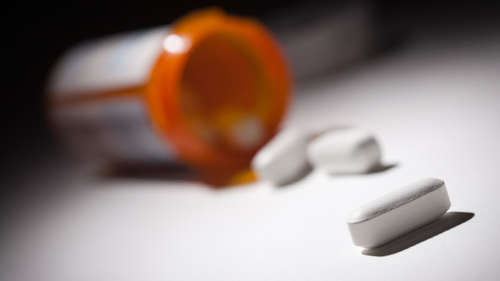Disposing of medications properly has multiple benefits

Pharmaceuticals can have a wide array of damaging environmental effects.
Photo: Johns Hopkins School of Public Health
Part of life is dealing with illnesses, and when we do, we often use pharmaceuticals to treat what ails us. Sometimes we end up with extra stock after getting better. Proper disposal isn't always of our utmost concern, often opting for a more convenient route. Getting rid of your pharmaceuticals properly can take an extra step or two, but that's far better than flushing your pills. Our wastewater treatment systems aren't designed to filter out pharmaceuticals, and after being released back into the environment, our ecosystems feel the effects.
Potential effects of pharmaceuticals in the environment are varying and widespread, including particularly troubling effects from a group of contaminants called endocrine disruptors. Endocrine disruptors can cause developmental, neurological, reproductive or immune effects in fish and animals, as well as humans. In a 2009 study by the United States Geological Survey of Lake Pepin, 73% of male small-mouth bass displayed evidence of hormonal feminization (or growing female organs), an issue that can alter the viability of the small-mouth bass population over the long-term by changing reproduction habits. While that doesn't translate directly to human health, fish and humans have almost identical organ systems, helping provide greater context for an emerging problem.
Unfortunately, abuse of pharmaceuticals has seen growth in recent years, something that not only poses health concerns for those individuals, but also has rippling effects in our communities. Due to the increased recreational demand for certain prescription drugs, disposal methods have been reconsidered to make proper disposal easier and more accessible. In September 2014, the Drug Enforcement Agency issued new regulations allowing pharmacies to collect medications, though the rule won't take effect in Minnesota until 2015. Luckily, there are over 150 collection boxes at law enforcement facilities in Minnesota that can take your medications.
If you are unable to bring your pharmaceuticals or medications to a drop box, there are other options. The Minnesota Pollution Control Agency has a variety of tips on how to manage or dispose of your unwanted medications, as well as more information on how pharmaceuticals and personal care products are affecting the water bodies of Minnesota.